To the Sociology of War
By Natalia Savelyeva December 23, 2024

When Russia launched its full‑scale invasion of Ukraine in February 2022, it sparked intense public interest in Russia and Russians. Do Russians support the war? Will they oust Putin anytime soon? How might sanctions and war casualties influence their support for the regime? At the same time, the war has intensified state repression against anti‑war activists and ordinary citizens who dare to voice their criticism publicly, making both data collection in Russia and its validity increasingly questionable.
Thus the war has brought several issues to the forefront. Some of these fall into the category of long‑standing, unresolved debates: they concern the limitations of various data collection methods in social science and the conditions that ensure the validity of such data. Others stem from the heightened interest in Russia, the polarization of public opinion and the political field. Finally, there is the problem of resources required for conducting research. In the following sections, I will demonstrate how these three problems affect both sociological research of war and the perception of its results. Being a scholar who specializes in studying Russia, I limit my observations and conclusions to research focused on Russia.
When Russia launched its full‑scale invasion of Ukraine in February 2022, it sparked intense public interest in Russia and Russians. Do Russians support the war? Will they oust Putin anytime soon? How might sanctions and war casualties influence their support for the regime? At the same time, the war has intensified state repression against anti‑war activists and ordinary citizens who dare to voice their criticism publicly, making both data collection in Russia and its validity increasingly questionable.
Thus the war has brought several issues to the forefront. Some of these fall into the category of long‑standing, unresolved debates: they concern the limitations of various data collection methods in social science and the conditions that ensure the validity of such data. Others stem from the heightened interest in Russia, the polarization of public opinion and the political field. Finally, there is the problem of resources required for conducting research. In the following sections, I will demonstrate how these three problems affect both sociological research of war and the perception of its results. Being a scholar who specializes in studying Russia, I limit my observations and conclusions to research focused on Russia.
One of the oldest debates in sociology concerns the limitations of qualitative and quantitative methods. Quantitative methods, such as surveys, are often criticized for failing to capture what people really think when answering poll questions. On the other hand, qualitative methods, which rely on interviews or ethnography, are questioned for their inability to cover a large number of cases and their reliance on non‑representative samples. Data collected in authoritarian regimes, where repression is used to control the population, can be unreliable, as can data gathered during crises, when people are under significant stress.
The greatest controversies have been sparked by public opinion polls conducted by Russian pollsters, including the independent Levada Center as well as state‑owned organizations such as the Public Opinion Foundation (FOM) and the Russian Public Opinion Research Center (VCIOM). Despite their differences, these pollsters often reported strikingly similar results. For example, their surveys suggested strong support among Russians for the so‑called «special military operation,“ numbers that have fueled intense debate in both academic and policy circles.
Some have used this data to argue that Russians are complicit in supporting the war. Others, however, have focused on the validity and reliability of public opinion polling in such contexts. Critiques have varied. Some have questioned the design of the questionnaires: the wording of certain questions used by both state‑controlled and independent pollsters appeared to influence the results.
One of the oldest debates in sociology concerns the limitations of qualitative and quantitative methods. Quantitative methods, such as surveys, are often criticized for failing to capture what people really think when answering poll questions. On the other hand, qualitative methods, which rely on interviews or ethnography, are questioned for their inability to cover a large number of cases and their reliance on non‑representative samples. Data collected in authoritarian regimes, where repression is used to control the population, can be unreliable, as can data gathered during crises, when people are under significant stress.
The greatest controversies have been sparked by public opinion polls conducted by Russian pollsters, including the independent Levada Center as well as state‑owned organizations such as the Public Opinion Foundation (FOM) and the Russian Public Opinion Research Center (VCIOM). Despite their differences, these pollsters often reported strikingly similar results. For example, their surveys suggested strong support among Russians for the so‑called «special military operation,” numbers that have fueled intense debate in both academic and policy circles.
Some have used this data to argue that Russians are complicit in supporting the war. Others, however, have focused on the validity and reliability of public opinion polling in such contexts. Critiques have varied. Some have questioned the design of the questionnaires: the wording of certain questions used by both state‑controlled and independent pollsters appeared to influence the results.
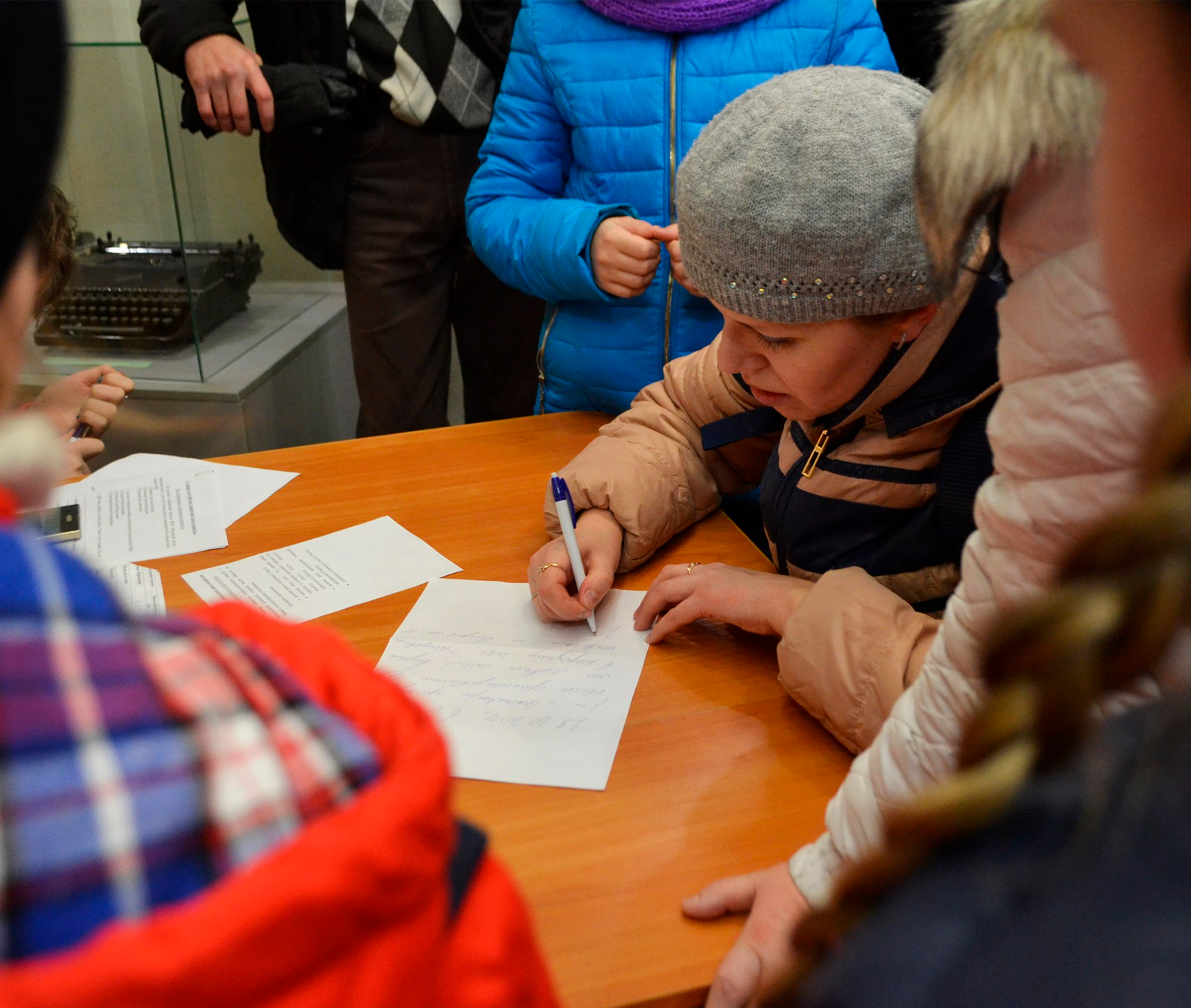

Others have raised doubts about the reliability of the data itself. Can we truly trust respondents' answers about their support for the war or opposition candidates when dissenters risk arrest for voicing their critique? How many people say «yes» to sensitive questions because they feel pressured to conform to the majority, and how many because they are genuinely afraid?
Does it mean that we cannot use surveys and any quantitative data collected in Russia to understand what is going on in Russia? No, it doesn’t. While we should take into account that fear, repressions and the desire to «fit in» inevitably affect the final numbers it also gives us some insights about the situation in Russia. But it is crucial to remember that poll results do not represent absolute truth. When a poll states that «70% of Russians support the special military operation,“ it simply means that 70% of respondents said «yes» to the specific question. That is all we know. To turn this data into a conclusion like «The majority of Russians support the war,” we must address several questions first. For example, what does it mean for us to «support the war» (our interpretation), and what are people actually agreeing to when they respond «yes» to a question about supporting the «special military operation»? In other words, these findings represent data, not a diagnosis. They require further interpretation and do not constitute an explanation on their own. Poll data can be valuable, but only if used critically and thoughtfully.
For example, the notion that Russians are attempting to normalize the war has become commonplace. From the earlier observations of how everyday life in Russia has remained largely unchanged to more recent studies that examine normalization strategies through ethnographic data, many scholars, experts, and journalists agree that «see no evil» has become a prevailing strategy for many Russians. This trend persists even amid occasional disruptions caused by events such as the recent incursion of the Ukrainian army into the Kursk region. Does this mean the goal should be to «work on strategies designed to help Russians overcome their cognitive dissonance, force them out of denial, and make them challenge their own beliefs»? No, it shouldn’t. This is a flawed conclusion, as it stems from a desire to assign blame to Russians for the war‑an approach that diverges significantly from the objectives of social research or constructive policy recommendations. Moreover, it disregards findings about how normalization and denial function, both generally and in the specific case of Russia. A recent ethnographic study conducted by the Public Sociology Laboratory revealed that many Russians who are not politically engaged may justify or condemn the war depending on the communicative context. When asked directly about the war in formalized settings, such as research interviews, they often justify the war through normalization («there are always wars») or rationalization («it was necessary»). However, they are more likely to criticize the war when prompted to consider how it negatively impacts their own lives as ordinary Russians.
Others have raised doubts about the reliability of the data itself. Can we truly trust respondents' answers about their support for the war or opposition candidates when dissenters risk arrest for voicing their critique? How many people say «yes» to sensitive questions because they feel pressured to conform to the majority, and how many because they are genuinely afraid?
Does it mean that we cannot use surveys and any quantitative data collected in Russia to understand what is going on in Russia? No, it doesn’t. While we should take into account that fear, repressions and the desire to «fit in» inevitably affect the final numbers it also gives us some insights about the situation in Russia. But it is crucial to remember that poll results do not represent absolute truth. When a poll states that «70% of Russians support the special military operation,“ it simply means that 70% of respondents said «yes» to the specific question. That is all we know. To turn this data into a conclusion like «The majority of Russians support the war,” we must address several questions first. For example, what does it mean for us to «support the war» (our interpretation), and what are people actually agreeing to when they respond «yes» to a question about supporting the «special military operation»? In other words, these findings represent data, not a diagnosis. They require further interpretation and do not constitute an explanation on their own. Poll data can be valuable, but only if used critically and thoughtfully.
For example, the notion that Russians are attempting to normalize the war has become commonplace. From the earlier observations of how everyday life in Russia has remained largely unchanged to more recent studies that examine normalization strategies through ethnographic data, many scholars, experts, and journalists agree that «see no evil» has become a prevailing strategy for many Russians. This trend persists even amid occasional disruptions caused by events such as the recent incursion of the Ukrainian army into the Kursk region. Does this mean the goal should be to «work on strategies designed to help Russians overcome their cognitive dissonance, force them out of denial, and make them challenge their own beliefs»? No, it shouldn’t. This is a flawed conclusion, as it stems from a desire to assign blame to Russians for the war‑an approach that diverges significantly from the objectives of social research or constructive policy recommendations. Moreover, it disregards findings about how normalization and denial function, both generally and in the specific case of Russia. A recent ethnographic study conducted by the Public Sociology Laboratory revealed that many Russians who are not politically engaged may justify or condemn the war depending on the communicative context. When asked directly about the war in formalized settings, such as research interviews, they often justify the war through normalization («there are always wars») or rationalization («it was necessary»). However, they are more likely to criticize the war when prompted to consider how it negatively impacts their own lives as ordinary Russians.
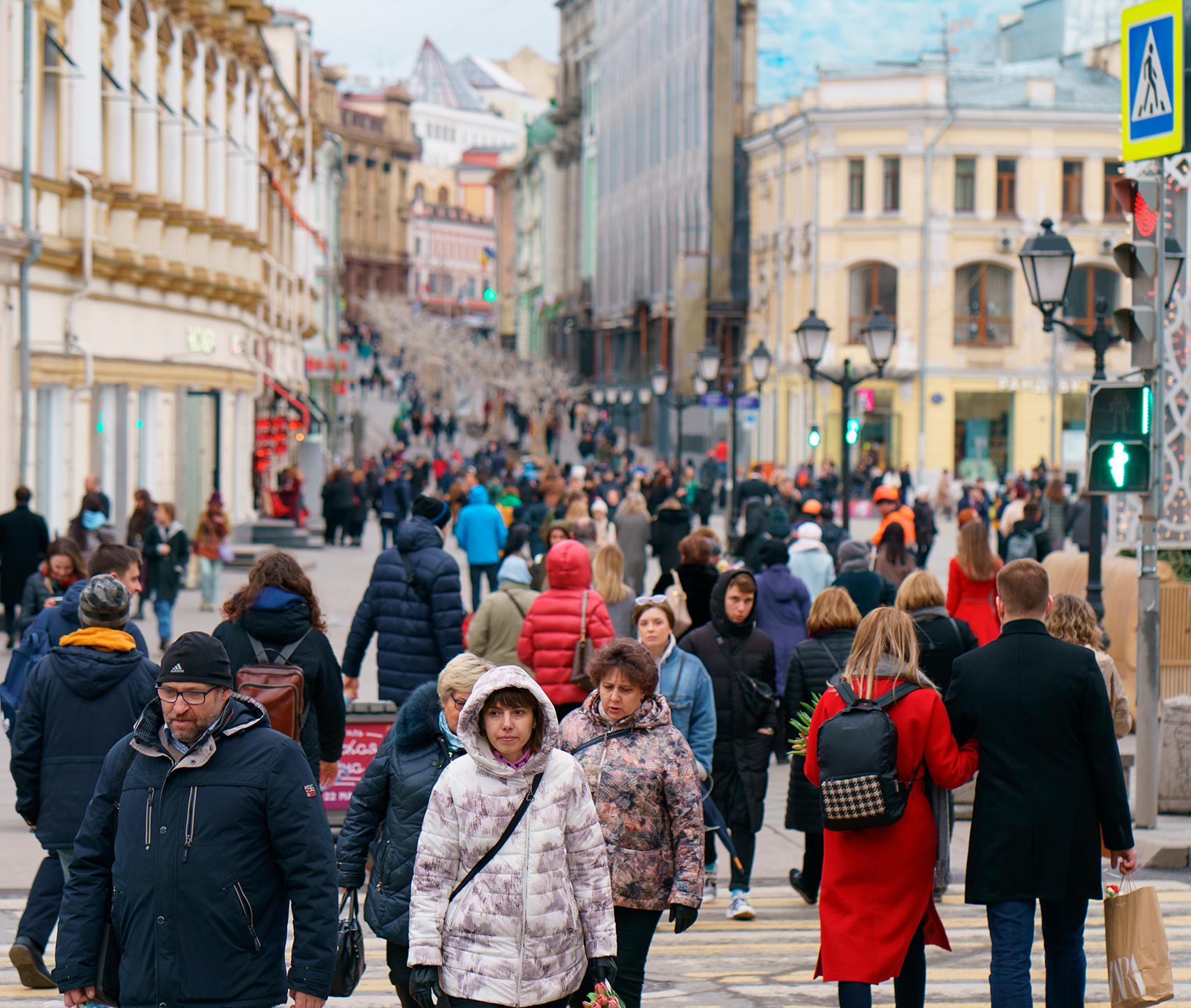

What is even more significant is their reaction to traditional anti‑war narratives. When Russia is accused of committing moral crimes against the Ukrainian people, many respondents tend to take such accusations personally, perceiving them as attacks on their own dignity, and respond by attempting to defend themselves. These findings align with studies on the effects of authoritarian propaganda, which demonstrate similar tendencies: when people are exposed to information that contradicts their beliefs, they often cling to their original opinions even more strongly. Thus, while the idea that Russians attempt to normalize the reality of war is accurate, it is essential to rely on sociological studies to understand how normalization operates in everyday settings. Only then can we develop informed policy recommendations. These recommendations will likely need to differ significantly from approaches that aim to bombard Russians with information about the crimes committed by the Russian army in an effort to force them to accept a bitter truth.
Thus, we can and should continue studying Russia and Russians, even during an ongoing war. It remains possible to collect data within the country using both quantitative and qualitative methods. However, it is essential to distinguish between raw data, which does not speak for itself, and research, which provides explanations by relying on robust methods and considering previous studies. Adopting a cumulative approach is equally crucial. By analyzing all available data and carefully identifying and evaluating the underlying arguments and rationales behind respondents’ answers in polls and focus groups, researchers can uncover a far more nuanced and complex picture than that offered by advocates of either simplified interpretation of reality. Additionally, integrating findings from surveys and polls with insights from interviews and ethnographic studies can help identify trends that emerge across both types of data.
What is even more significant is their reaction to traditional anti‑war narratives. When Russia is accused of committing moral crimes against the Ukrainian people, many respondents tend to take such accusations personally, perceiving them as attacks on their own dignity, and respond by attempting to defend themselves. These findings align with studies on the effects of authoritarian propaganda, which demonstrate similar tendencies: when people are exposed to information that contradicts their beliefs, they often cling to their original opinions even more strongly. Thus, while the idea that Russians attempt to normalize the reality of war is accurate, it is essential to rely on sociological studies to understand how normalization operates in everyday settings. Only then can we develop informed policy recommendations. These recommendations will likely need to differ significantly from approaches that aim to bombard Russians with information about the crimes committed by the Russian army in an effort to force them to accept a bitter truth.
Thus, we can and should continue studying Russia and Russians, even during an ongoing war. It remains possible to collect data within the country using both quantitative and qualitative methods. However, it is essential to distinguish between raw data, which does not speak for itself, and research, which provides explanations by relying on robust methods and considering previous studies. Adopting a cumulative approach is equally crucial. By analyzing all available data and carefully identifying and evaluating the underlying arguments and rationales behind respondents’ answers in polls and focus groups, researchers can uncover a far more nuanced and complex picture than that offered by advocates of either simplified interpretation of reality. Additionally, integrating findings from surveys and polls with insights from interviews and ethnographic studies can help identify trends that emerge across both types of data.
At first glance, it may seem that the war has created ideal circumstances for experts on Russia: suddenly, everyone wants to understand what is happening in Russia because of its attack on Ukraine. However, this heightened demand inevitably fosters the exoticization of Russia and Russians, which significantly influences not only how research on Russia is conducted but also how the findings of such studies are perceived.
The issue is that war, by polarizing public opinion both within and beyond the countries directly involved, as well as within the international political community, force to exoticize Russia and Russians. As a result, social and political scientists, often against their own intentions, become entangled in producing sensational and over‑simplified depictions.
Regardless of what social and political scientists study‑whether it be support for Putin and the war, protest sentiments, or the few activists still trying to take action in Russia‑their work is often perceived through a simplistic lens. Audiences frequently interpret this research either as «horror stories» that confirm existing stereotypes or as attempts to break them. Every study conducted by our Laboratory that seeks to demonstrate the complexity of people’s motivations and attitudes by linking them to specific conditions inevitably receives comments along the lines of, «Oh well, if those Russians are so stupid, they deserve it.“
When research focuses on activists who continue to operate within Russia, the findings are often misinterpreted as implying, «There are still good people in Russia (though very few),” or, «Russia is not entirely horrible after all.“ Those conducting these studies often find themselves drawn into the same debate, compelled to emphasize their primary argument, like that civic society still exists in Russia. Yes, it still exists; yes, it is small; and yes, those activists need all the support they can get. However, the very question of whether civil society still exists in Russia implies a binary view: that there are only two types of people living there‑«good» activists and «bad» Russians. This is a misleading framing that reinforces harmful stereotypes.
At first glance, it may seem that the war has created ideal circumstances for experts on Russia: suddenly, everyone wants to understand what is happening in Russia because of its attack on Ukraine. However, this heightened demand inevitably fosters the exoticization of Russia and Russians, which significantly influences not only how research on Russia is conducted but also how the findings of such studies are perceived.
The issue is that war, by polarizing public opinion both within and beyond the countries directly involved, as well as within the international political community, force to exoticize Russia and Russians. As a result, social and political scientists, often against their own intentions, become entangled in producing sensational and over‑simplified depictions.
Regardless of what social and political scientists study‑whether it be support for Putin and the war, protest sentiments, or the few activists still trying to take action in Russia‑their work is often perceived through a simplistic lens. Audiences frequently interpret this research either as «horror stories» that confirm existing stereotypes or as attempts to break them. Every study conducted by our Laboratory that seeks to demonstrate the complexity of people’s motivations and attitudes by linking them to specific conditions inevitably receives comments along the lines of, «Oh well, if those Russians are so stupid, they deserve it.”
When research focuses on activists who continue to operate within Russia, the findings are often misinterpreted as implying, «There are still good people in Russia (though very few),“ or, «Russia is not entirely horrible after all.” Those conducting these studies often find themselves drawn into the same debate, compelled to emphasize their primary argument, like that civic society still exists in Russia. Yes, it still exists; yes, it is small; and yes, those activists need all the support they can get. However, the very question of whether civil society still exists in Russia implies a binary view: that there are only two types of people living there‑«good» activists and «bad» Russians. This is a misleading framing that reinforces harmful stereotypes.


As a result, rather than breaking with common sense and prejudices to engage in meaningful discussions about the state of affairs, scholars, activists, and experts frequently become entangled in the reductive debate about whether «Russians are that bad.“ Such discussions, however, do little to enhance our understanding of the dynamics of Russian society, the nature of support for the war, or the forms of resistance to it. Instead, this framing diverts attention away from substantive conversations about current issues and viable political alternatives for Russia.
This dynamic partly stems from the emotions of scholars and experts themselves: their hatred, their guilt, or their desire to demonstrate that they are «on the right side.” Experts discussing Russia often feel compelled to condemn it‑an act that, in the current climate, likely bolsters their professional reputation. Similarly, scholars studying the remnants of Russian civil society often grapple with a sense of survival guilt: «We left, you stayed; we will make you visible.“
All these tendencies only reinforce the problematic trends outlined above: the prioritization of raw data over rigorous research and the naïve interpretation of such data as inherently proving something simply by its existence. Furthermore, the exoticization of Russia and Russians distorts both academic and policy discourse, while also legitimizing racist narratives within these fields and beyond. The kinds of statements that scholars and policy experts now feel emboldened to make at academic conferences, symposiums, and policy discussions would be career‑ending for any university professor in the United States‑and likely in Europe‑if they were directed at any group other than Russians. Racism is problematic not only from an ethical standpoint but also because, like any prejudice, it clouds judgment and misguides analysis. In other words, engaging deeply in the «How bad are Russians?» discussion does not lead to a better understanding of Russia; it achieves the opposite.
Finally, the heightened attention to Russia following the full‑scale invasion, coupled with reliance on raw data interpreted through prejudice, has ironically resulted in a reversal of attitudes toward studying the country. If Russia and Russians are perceived as irredeemably deaf to rational and moral arguments, some now question: why should we study Russia at all?
Beyond the obvious argument that Russia is not going to disappear from the political map anytime soon‑and that, with or without Putin, politicians will need to engage with it‑there is another critical reason: the country is changing, and it is changing now. Moreover, Russia is not alone. We are witnessing the consolidation of authoritarian elites worldwide who can successfully mobilize the support of large segments of the population. Examples include the victory of the «Georgian Dream» party in Georgia and Maia Sandu’s narrow escape from defeat in Moldova. What were once disparate illiberal regimes‑where authoritarian leaders shared strategies for maintaining their grip on power‑are now coalescing into authoritarian clusters. Russia’s war on Ukraine is only one part of this larger trend. Studying Russia is therefore essential not only to navigate the current political situation but also to understand the underlying logic of these authoritarian actors. This knowledge is vital for addressing the challenges posed by these regimes, including Russia itself, as part of an evolving global landscape.
As a result, rather than breaking with common sense and prejudices to engage in meaningful discussions about the state of affairs, scholars, activists, and experts frequently become entangled in the reductive debate about whether «Russians are that bad.” Such discussions, however, do little to enhance our understanding of the dynamics of Russian society, the nature of support for the war, or the forms of resistance to it. Instead, this framing diverts attention away from substantive conversations about current issues and viable political alternatives for Russia.
This dynamic partly stems from the emotions of scholars and experts themselves: their hatred, their guilt, or their desire to demonstrate that they are «on the right side.“ Experts discussing Russia often feel compelled to condemn it‑an act that, in the current climate, likely bolsters their professional reputation. Similarly, scholars studying the remnants of Russian civil society often grapple with a sense of survival guilt: «We left, you stayed; we will make you visible.”
All these tendencies only reinforce the problematic trends outlined above: the prioritization of raw data over rigorous research and the naïve interpretation of such data as inherently proving something simply by its existence. Furthermore, the exoticization of Russia and Russians distorts both academic and policy discourse, while also legitimizing racist narratives within these fields and beyond. The kinds of statements that scholars and policy experts now feel emboldened to make at academic conferences, symposiums, and policy discussions would be career‑ending for any university professor in the United States‑and likely in Europe‑if they were directed at any group other than Russians. Racism is problematic not only from an ethical standpoint but also because, like any prejudice, it clouds judgment and misguides analysis. In other words, engaging deeply in the «How bad are Russians?» discussion does not lead to a better understanding of Russia; it achieves the opposite.
Finally, the heightened attention to Russia following the full‑scale invasion, coupled with reliance on raw data interpreted through prejudice, has ironically resulted in a reversal of attitudes toward studying the country. If Russia and Russians are perceived as irredeemably deaf to rational and moral arguments, some now question: why should we study Russia at all?
Beyond the obvious argument that Russia is not going to disappear from the political map anytime soon‑and that, with or without Putin, politicians will need to engage with it‑there is another critical reason: the country is changing, and it is changing now. Moreover, Russia is not alone. We are witnessing the consolidation of authoritarian elites worldwide who can successfully mobilize the support of large segments of the population. Examples include the victory of the «Georgian Dream» party in Georgia and Maia Sandu’s narrow escape from defeat in Moldova. What were once disparate illiberal regimes‑where authoritarian leaders shared strategies for maintaining their grip on power‑are now coalescing into authoritarian clusters. Russia’s war on Ukraine is only one part of this larger trend. Studying Russia is therefore essential not only to navigate the current political situation but also to understand the underlying logic of these authoritarian actors. This knowledge is vital for addressing the challenges posed by these regimes, including Russia itself, as part of an evolving global landscape.
Although the war has bolstered interest in Russia, it has not led to the allocation of sufficient resources to support data‑driven, methodologically rigorous, and grounded research. Research priorities are often dictated by NGOs and funding bodies, which tend to have pragmatic goals. They seek answers to specific questions and frequently expect results within short timeframes, focusing their attention on particular groups, such as activists and Russian migrant communities. Proper sociological research, however, requires a longer timeline and different questions. Simultaneously, the research cycles associated with universities and academic grants are ill‑suited to provide immediate responses to rapidly evolving situations. As a result, the high demand for knowledge about Russia is often satisfied not by comprehensive sociological or political studies‑which require time and resources‑but instead by superficial analyses based on voluntary interpretations of polling data and influenced by prevailing prejudices. Though it remains up to scholars and experts involved in the debate about Russia to determine their strategies for engaging with the available sources.
Although the war has bolstered interest in Russia, it has not led to the allocation of sufficient resources to support data‑driven, methodologically rigorous, and grounded research. Research priorities are often dictated by NGOs and funding bodies, which tend to have pragmatic goals. They seek answers to specific questions and frequently expect results within short timeframes, focusing their attention on particular groups, such as activists and Russian migrant communities. Proper sociological research, however, requires a longer timeline and different questions. Simultaneously, the research cycles associated with universities and academic grants are ill‑suited to provide immediate responses to rapidly evolving situations. As a result, the high demand for knowledge about Russia is often satisfied not by comprehensive sociological or political studies‑which require time and resources‑but instead by superficial analyses based on voluntary interpretations of polling data and influenced by prevailing prejudices. Though it remains up to scholars and experts involved in the debate about Russia to determine their strategies for engaging with the available sources.
What are the trends in Russian public opinion regarding the war and support for the Putin regime?
By Vladimir Milov
December 11, 2023
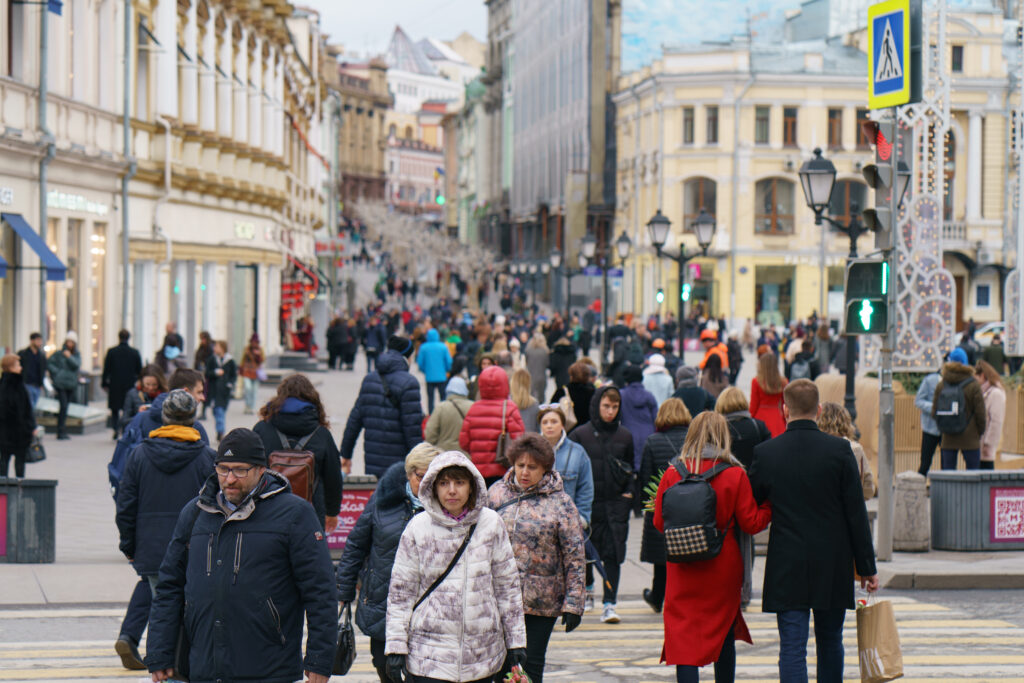 Article
Article No one in Russia wants a long‑term war, and the mobilization for the war is unpopular
By Vladimir Milov
December 30, 2022
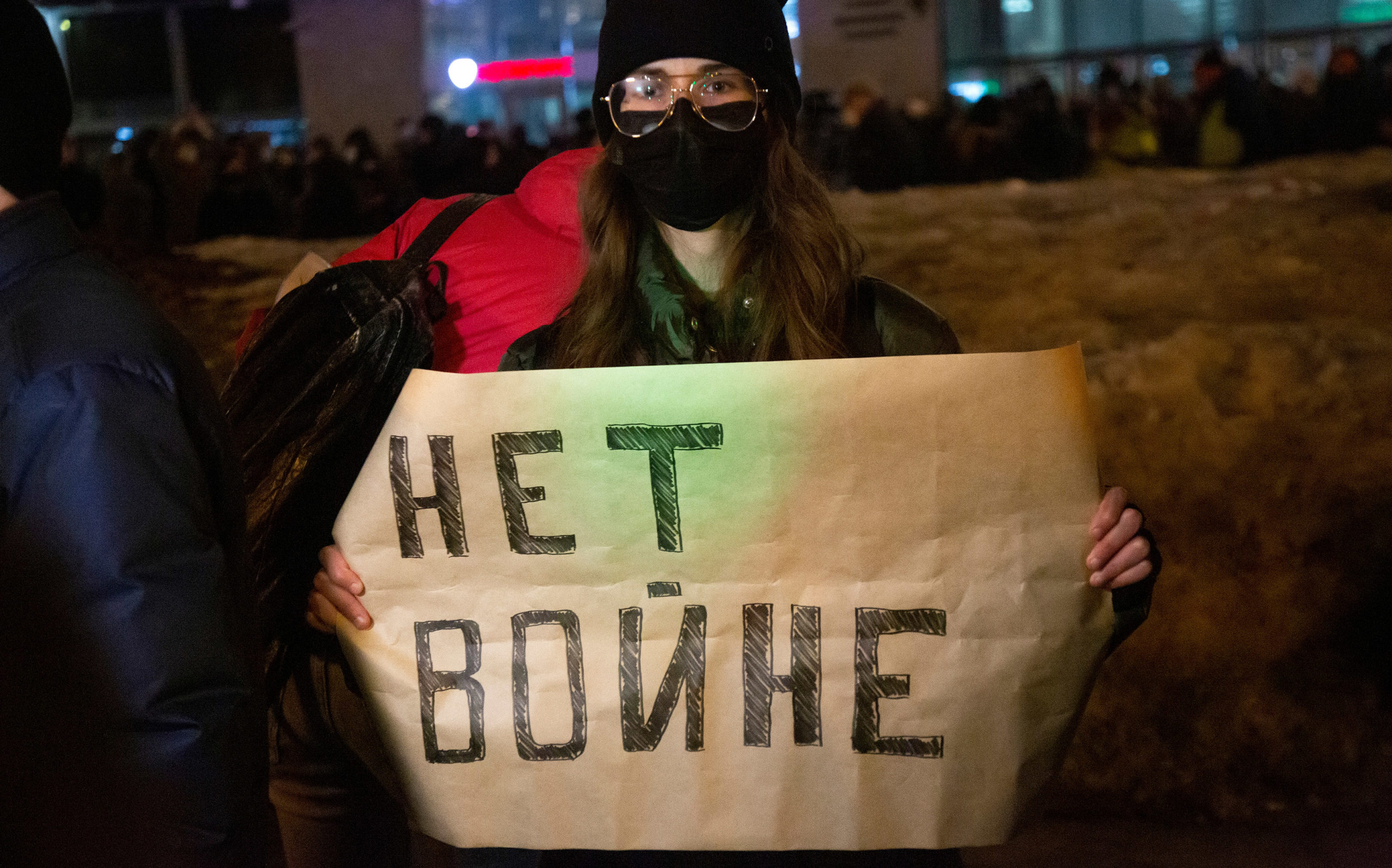 Report
Report By Abbas Galliamov
March 14, 2024
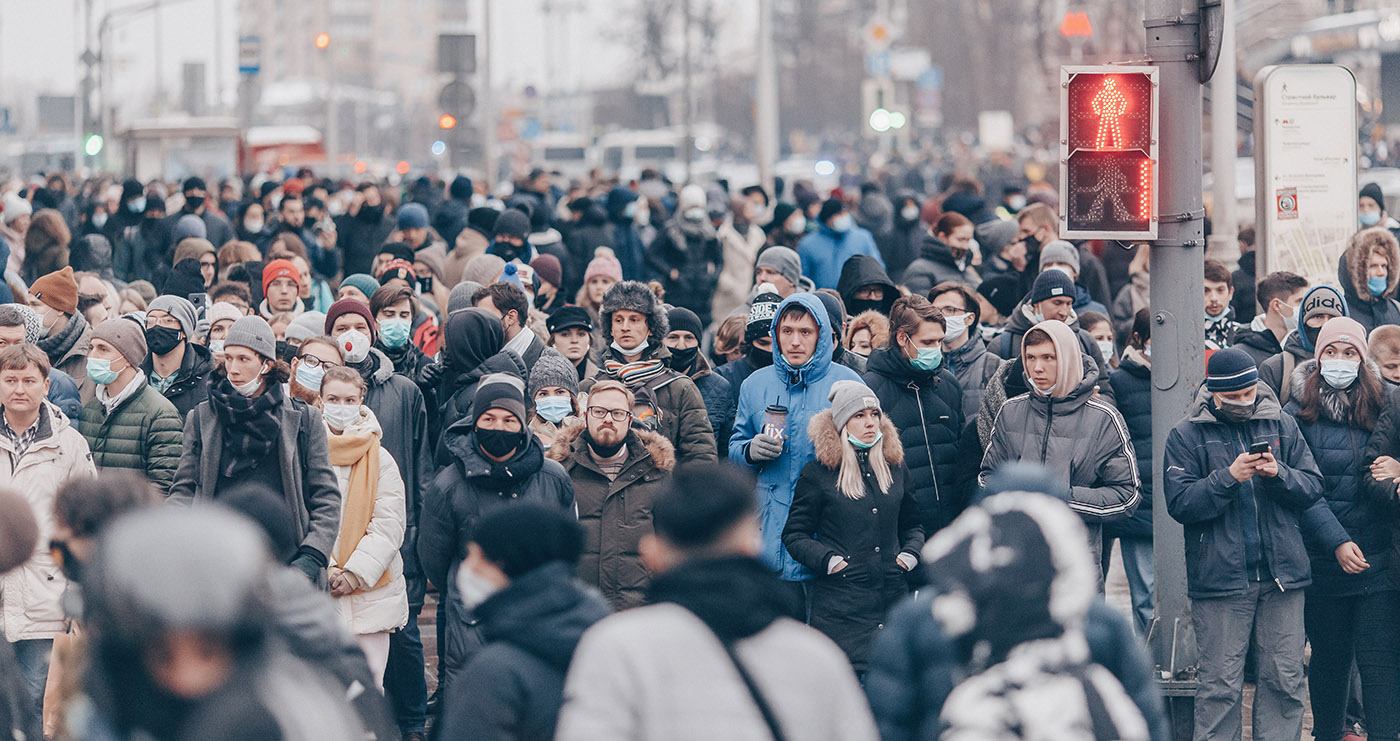
What are the trends in Russian public opinion regarding the war and support for the Putin regime?
By Vladimir Milov
December 11, 2023
 Article
Article No one in Russia wants a long‑term war, and the mobilization for the war is unpopular
By Vladimir Milov
December 30, 2022
 Report
Report By Abbas Galliamov
March 14, 2024
